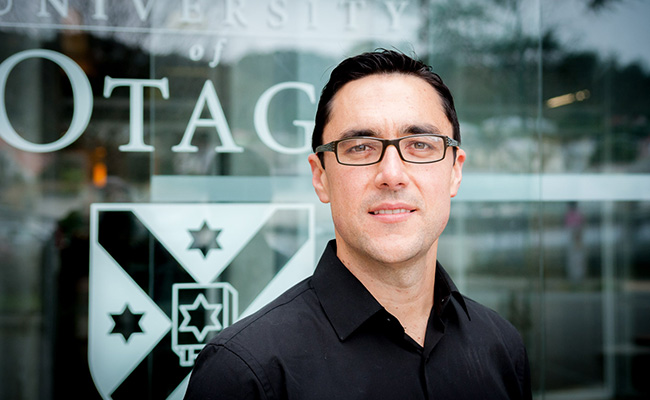
Dr Jason Gurney.
Māori have poorer access to early diagnosis for some key cancers including breast and colorectal cancers though, this is not the case for all cancers and is not necessarily why more Māori are dying of cancer, new University of Otago research shows.
Lead author, Dr Jason Gurney from the University of Otago, Wellington, says previous research shows there is strong evidence that Māori cancer patients are more likely to die of their cancer than non-Māori cancer patients and one of the possible drivers of this inequity is differential access to timely diagnoses.
However, Dr Gurney says this latest research shows this is not necessarily why more Māori are dying of cancer than non-Māori.
“It isn't fair to assume that poor survival outcomes for Māori are due to late diagnosis, because that simply isn't the case for a number of cancers,” says Dr Gurney.
Stage at diagnosis for Māori cancer patients: disparities, similarities and data limitations published today in the New Zealand Medical Journal highlights some weaknesses in the system, particularly around stage data collection on the New Zealand Cancer Registry.
“It needs improvements so that we can monitor progress toward achieving equity in stage at diagnosis for Māori,” says Dr Gurney.
In this study, the best available data on stage of cancer at diagnosis for Māori and European/ other patients was collected through the New Zealand Cancer Registry and available clinical audit data. The two ethnic groups were then compared and the researchers found that while Māori are less likely to be diagnosed at an early stage for several commonly-diagnosed cancers, this is not the case for all cancers.
According to Dr Gurney, a lot more work to improve access to early diagnosis among Māori is needed and this needs to be prioritised as a society. “We need to screen around 3,000 additional Māori women just to achieve equity in participation in the Breast Screen Aotearoa programme – we need to do whatever it takes to make this happen.”
This research aims to address assumptions that Māori have poorer survival outcomes than non-Māori because they are diagnosed with more advanced disease.
“This simply isn't true for a number of cancers. Stage at diagnosis is an important prognostic factor, but it isn't the only important prognostic factor,” says Dr Gurney.
“We need to look at where inequities occur for Māori across the whole cancer pathway – right from prevention through to early diagnosis and treatment.”
Dr Gurney anticipates this will better inform the Ministry of Health to ensure that the work required to improve the quality of staging information on the Cancer Registry is prioritised and well-resourced.
“It's of crucial importance to all New Zealanders that we get this right – especially for Māori.
“In our paper we talk about the weaknesses of our national cancer registry in terms of allowing us to monitor stage at diagnosis for Māori (and non-Māori) patients,” says Dr Gurney.
He was surprised to see how much work still needs to be done just to be able to monitor stage at diagnosis at a national level for important cancers like lung cancer. Currently, there is too much reliance on clinical audits to indicate what is really happening for Māori in this area, he says.
Dr Gurney says the new Cancer Action Plan aims to be equity-led and he hopes will lead to reducing inequities in health.
“The Cancer Control Agency and the new Plan are our best shots in a generation at making meaningful gains in cancer outcomes for Māori – and we simply don't have the luxury of stuffing this up.
“This Agency needs to be well-resourced and supported to achieve these goals for Māori, and we all need to hold our Government to account to make sure that they do so.”
For more information, contact:
Dr Jason Gurney
BSc (Hons), PhD
Senior Research Fellow and Deputy Director, Cancer and Chronic Conditions (C3) Research Group
Research Portfolio Leader, Department of Public Health
University of Otago, Wellington
Email jason.gurney@otago.ac.nz
Kelly-Ann Tahitahi
Communications Advisor (Māori)
University of Otago
Mob +64 21 279 9139
Tel +64 3 479 9139
Email kelly-ann.tahitahi@otago.ac.nz
Find an Otago expert
Use our Media Expertise Database to find an Otago researcher for media comment.
